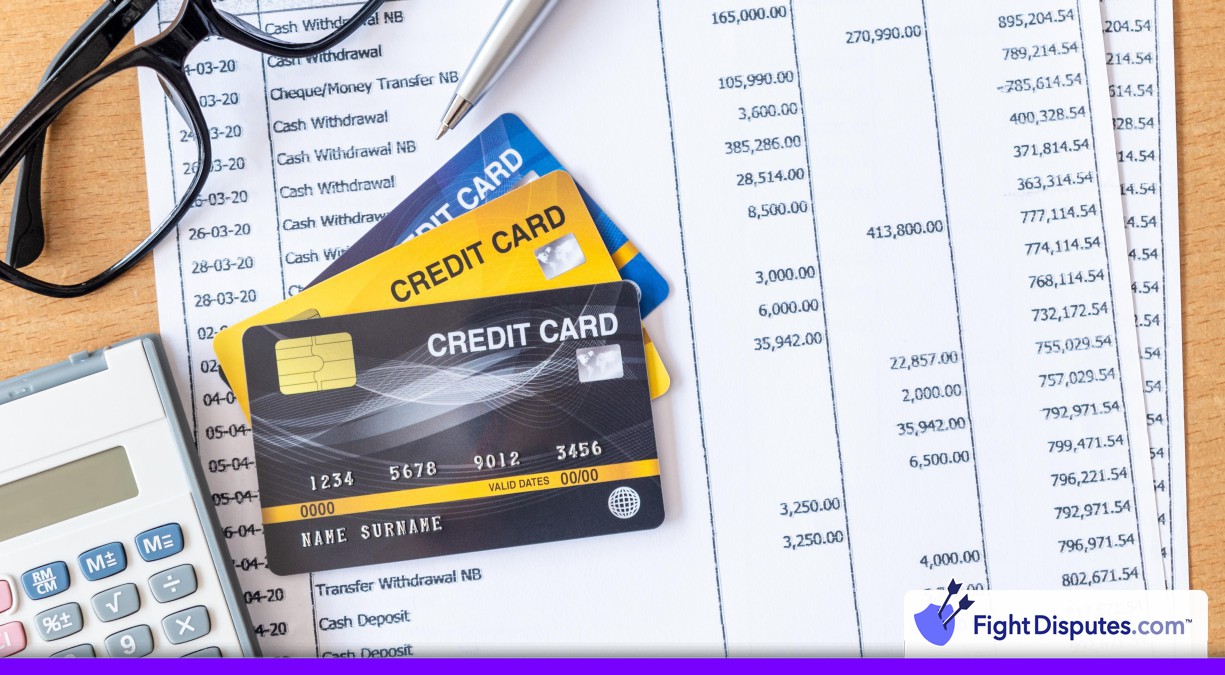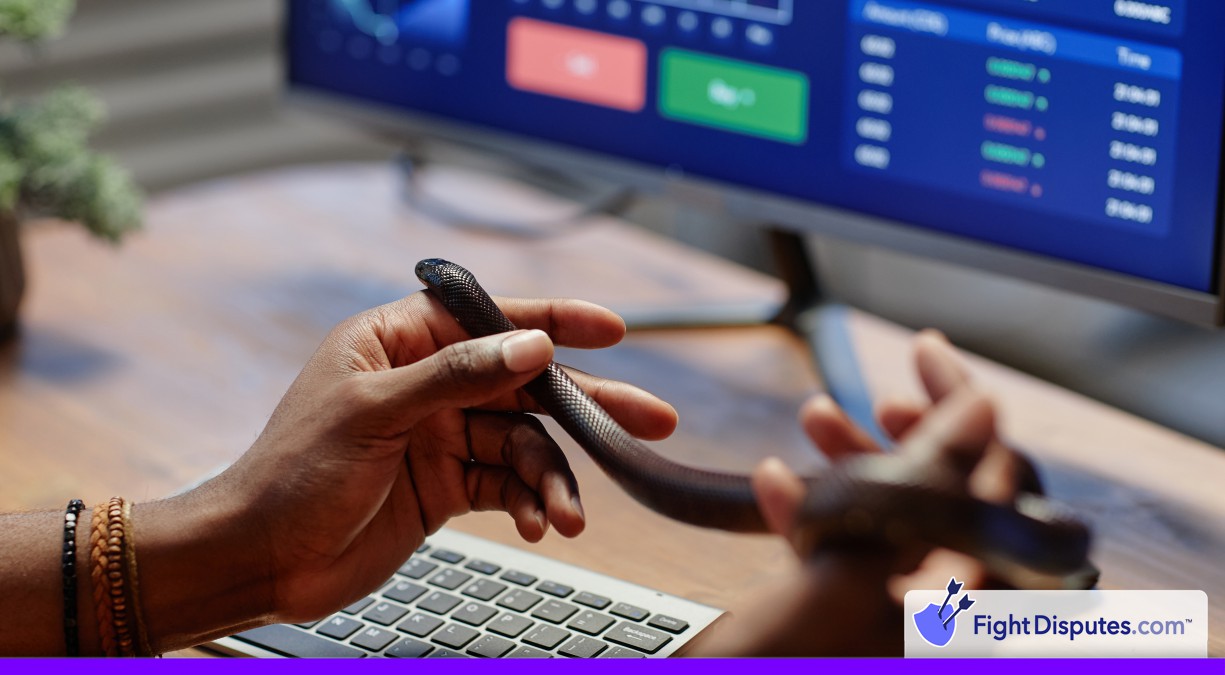LP: Late Presentation
LP chargebacks kick in when you send the transaction after the card network’s cutoff time, so if you wait too long to process the payment after you deliver your service or ship a product, expect a chargeback that’s very hard to win.
Most card networks give you 10 calendar days from the original transaction date to get everything processed. Miss that deadline and you’ll probably lose the dispute, no matter how strong your case looks.
What makes LP chargebacks especially frustrating is that they have nothing to do with fraud or unhappy customers. Your product could be perfect, and your customer could be thrilled with the order, but these disputes can still pop up. The problem is simple – charges that appear on the statement weeks after a customer made the purchase usually go unrecognized. Cardholders call their bank to dispute what looks like an unfamiliar charge, and suddenly, there’s a chargeback heading your way.
Aside from the headache, expect chargeback fees that usually run anywhere from $20 to $100 per dispute. Add to that all the time your team is going to need to collect paperwork and put together your reply to the dispute. Even with solid proof that the customer approved the order, you can still lose because the submission timeline was missed.
LP chargebacks can start to pile up fast over time, and the most frustrating part is how avoidable they are. When business owners first run into hot water with these fees, improving customer service or adding extra security layers to the payment process won’t help. The fix is simple – you just need to submit your transaction data within the right timeframe.
How It Works
When a merchant waits too long to submit a transaction to Discover, the whole process breaks down. Maybe the point-of-sale system had a glitch over the weekend or basically forgot to run the batch at closing. Whatever caused the delay, it gives you a headache that nobody wants.
The charge finally shows up on the customer’s statement weeks (or a month) after they made the buy. They look at their monthly bill and have no idea what this random charge is for. Customers don’t hold mental records of the transactions from a month ago, so they call their bank to dispute them.
From there, the situation gets very frustrating for everyone involved. The customer legitimately doesn’t remember making the buy because too much time has passed. Discover sees the late submission and automatically assigns the LP reason code. Now you have to prove that the transaction was legitimate – even though the customer likely did authorize it in the first place.
The paperwork piles up faster after that. You have to show the original transaction date and the submission date and explain why the delay happened. Then you need proof that the customer did make that buy. All this paperwork can take 60 to 90 days to wrap up. During that time, your merchant account takes a financial hit, and you’re out of the money until everything is worked out.
Requirements and Timeframes
Discover tells you that you have 10 days to send in your transactions, and they mean it. It’s not a friendly reminder or some loose guideline you can work around – it’s a hard deadline that most merchants need to follow. You have a full 10 calendar days from the transaction date to manage those card payments. Miss that window and you’re stuck with a chargeback that you just can’t dispute.
The situation gets a bit harder depending on what type of business you run.
- Hotels usually have different rules because guests might extend their stay or add extra room-service charges.
- Airlines manage the bookings that customers made months ahead of time.
- Car-rental places have to work with deposits and final charges that happen at very different points in time.
If any of these sound like your business, then you need to look into the exact rules that apply to your situation.
The hard part is that your business might actually manage a few different types of transactions. Maybe you run a hotel that also has a gift shop and restaurant attached – each part of your business could have its own separate deadline that you need to track. You can’t simply believe that one policy is going to cover everything that you do.
These rules come directly from Discover’s network policies. They update their rules each year, and sometimes those deadlines will move around. What worked just fine last year might leave you in trouble. You want to review the latest policies as you start taking care of payments. Don’t wait until your inbox gets a chargeback notice to learn what the rules are.
How it Affects Chargeback Prevention
Your chargeback numbers tell a story, and LP chargebacks probably feel like salt in the wound. These disputes hurt your dispute ratio and push you dangerously closer to those card network thresholds that nobody wants to cross. What makes it even more frustrating is that each one of these chargebacks was completely preventable.
Think about what you’re already up against every day. You’re always fighting fraud chargebacks and unhappy customers who dispute purchases they actually made. Now you have to add LP chargebacks to that growing pile of problems, all because some of the transactions went through a little too late. The dispute rate keeps climbing higher and higher, and your processor starts to notice your account activity.
Once your dispute ratio crosses those industry thresholds, the problems start to surface. Your processing fees increase first, and they hit your bottom line right away. Then come the watch-list programs with their expensive monthly penalties that add up fast. Eventually, you could wind up with account restrictions or lose your ability to process credit cards altogether – this whole mess starts just because some of the transactions took too long to make their way through the system.
The news is that LP chargebacks are actually the easiest type of dispute to avoid. You don’t need fraud detection tools or a bigger customer service team. You just need to process transactions on time every time. Set up automated systems to manage your recurring charges and keep a close eye on your transaction queues throughout the day. Don’t let anything sit around for too long in the queue.
Your banking relationships are worth protecting, too. High chargeback rates make banks nervous about your merchant account, and they may start requiring extra reserves or impose much stricter terms on your agreement going forward.
Example Scenarios
Late presentation chargebacks happen all the time in actual businesses, and the scenarios are pretty basic. A busy restaurant on a Saturday night may have its credit card terminal crash right in the middle of the dinner rush. The manager has no choice but to write down the card numbers and run them manually on Monday morning – except that’s already 3 days since those meals were served. The work takes another day, and the batch doesn’t close until Tuesday. Now they’re sitting at 5 days and still need to wait for their processor to submit everything to Discover.
Retail stores run into the same problem all the time. A small boutique that processes orders by hand each morning might take a long weekend, and suddenly, those Friday orders don’t get worked on until Tuesday. Add in the payment gateway’s processing time, and they’re already pushing that 10-day limit. Service businesses face this same problem when they invoice clients weeks after completing the work. A consultation done on the 1st of the month might not get billed until the 15th, and by then, they’re already in a tight place.
Once you submit a transaction after 10 days, you’re asking for problems. Discover will almost automatically approve a chargeback if the customer disputes it – even if you have perfect records and the service was actually provided. Customers see these delayed charges pop up on their statements and legitimately don’t remember what they bought. Your dispute ratio takes a hit, and the whole mess can drag on for 2 or 3 months as the banks sort everything out.
Frequently Asked Questions
Can I win a dispute for an LP chargeback?
The laws are pretty easy, and Discover doesn't bend them for anyone. You can try to explain what caused the delay. But the win rate stays very low. Most merchants learn that these chargebacks are almost impossible to beat, no matter how strong their paperwork looks.
For your defense to work, you'd need something out of the ordinary that was completely outside of your control. Maybe your whole payment system went down for a few days, or a natural disaster shut your doors. Without that big disruption, Discover usually sides with the cardholder. Standard delays from busy holiday seasons or a short-staffed week just won't convince them.
That's why prevention beats defense every time with these LP chargebacks. Once the dispute arrives, you're already in a game where the odds lean heavily against you. The hours and money that you spend on a response don't pay off. Most merchants who fight these disputes become frustrated and still face the chargeback amount and extra fees.
Are there any industries exempt from the 10-day rule?
The 10-day deadline for late presentation disputes doesn't apply to all businesses out there. Some industries get extra time because their billing cycles run a bit differently. That makes sense. Hotels are probably the best example. They can't finish their charges until after guests check out, and only then do they find unpaid room-service tabs, minibar purchases, or damage to the room.
Car rental agencies run into the same problem day-to-day. A customer drops off the car. But the company won't know about problems until they look the vehicle over from top to bottom. Maybe the gas tank is empty or there's a new dent in the bumper. The rental team needs time to check the car well and then figure out whatever extra fees apply to that rental.
Airlines also benefit from these longer windows, and they need the extra flexibility. They work with ticket changes and cancellations that can get messy - sometimes it takes weeks just to sort out which charges belong on a passenger's bill.
Here's where merchants need to pay attention. You basically can't believe that your business qualifies for one of these exceptions. Your merchant category code decides which set of laws applies to your business. A small bed-and-breakfast usually gets treated as standard retail - not as a hotel.
The best move is to call Discover directly and check how the policy applies to you. And remember - these exception categories can change. The laws that cover your business this year could look different next year after Discover changes its policies. Most businesses still have to stick with that standard 10-day deadline, no matter their industry. Don't lose a dispute because you thought you had more time than you do.
How much does an LP chargeback cost my business?
Late presentation chargebacks will wreck your finances, and most merchants have no idea just how devastating the whole process actually is. When one of these chargebacks hits your account, the entire transaction amount gets pulled out immediately - but your problems are just beginning. Your team ends up wasting hours and hours trying to get together the right documentation and working through the dispute process - even though these cases almost never work out in your favor anyway. The real damage comes from the hidden fees stacking up behind the scenes.
What makes this whole mess so frustrating is how these costs just pile up when dispute numbers start climbing. Your processing rates can jump up practically overnight, and you'll get hit with account restrictions or extra scrutiny from card networks like Discover and others - this creates big issues that ripple through your entire business operations. These chargebacks get tallied up against your dispute limits just like actual fraud cases do - even though you could have avoided them completely with better timing on your part. These domino effects put your entire payment processing relationship with your bank in actual danger.
The upside is that every one of these costs can be eliminated with the right systems in place. Late presentation problems fall squarely within your control, and they don't touch a single transaction - but they can hurt the health of your whole merchant account. Taking some proactive steps now to review and tighten up your payment processing workflows could save your business thousands of dollars.
 Call (844) NO-DISPUTES
Call (844) NO-DISPUTES




